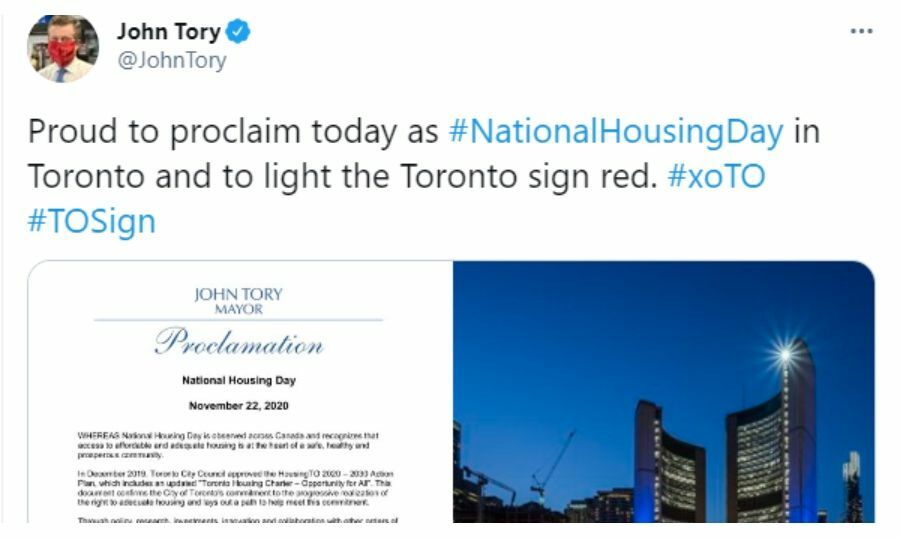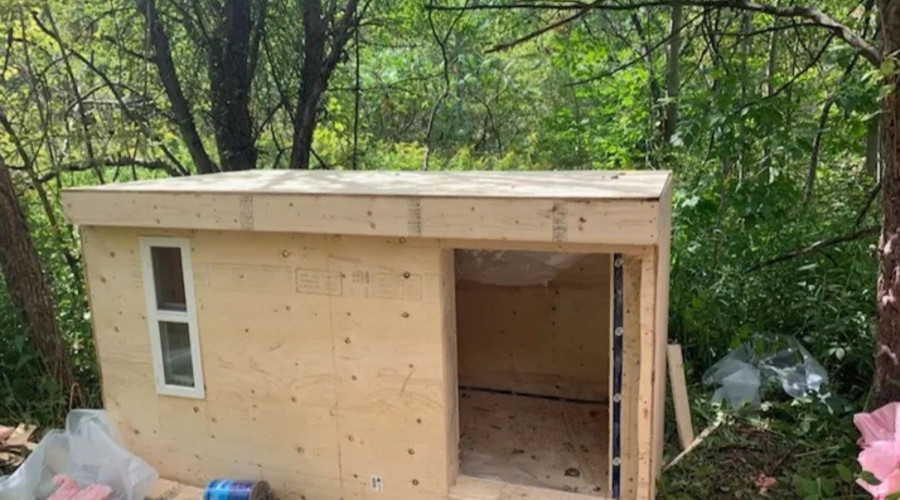I have several years of Sunday school and a couple of bitter summers in Bible camp to thank for that knowledge. After years of expanding my spiritual horizons, I’ve made the discovery that every major religion around the world has some version of Christ’s “Golden Rule”; do unto others as you would have done unto you. This shared wisdom passed on by religious scholars of multiple faiths for at least 2 millennia is so relevant when observing the battle between the City of Toronto and Khaleel Seivwright, the builder behind Tiny Toronto Homes. This is made for Hollywood drama. Mel Gibson’s Passion of The Christ with an independent budget and less gratuitous violence. Well, unless you count the violence of precarious shelter imposed on the city’s homeless population. A population that, based on the rise of encampments popping up in public parks and under highways, has only been exacerbated by the loss of employment and already overburdened shelters impacted by COVID-19.
Seivwright, seeing the need for shelter in his city, and recognizing the deadly impact of an encroaching Canadian winter on the unsheltered, used his skills as a carpenter to provide a temporary solution in the form of tiny insulated wooden structures that lock, and are outfitted with fire extinguishers and both carbon monoxide and smoke detectors. He intended to help save lives while the bureaucrats in city hall figured out how best to house the homeless. Since taking that action, Seivwright has been hit with a letter to cease and desist by Toronto Parks General Manager Jamie Romoff in November because of “blah-blah City by-laws” something, “blah-blah camping on City property” something else. By the way, this was our mayor just days after this threat was levelled against Seivwright.

This comedy of errors has since been followed up by an injunction on February 12th to stop Seivwright from building more of the structures because, according to City spokesperson Brad Ross, "The structures are making it challenging and difficult to encourage people who are living outside to come inside where it is safer.” What he doesn’t say is there aren’t enough shelters presently to house the estimated 10,000 homeless members of our society, or that shelters that do exist are overcrowded in the middle of a pandemic where shared proximity to other humans is a potential death sentence for people with compromised immune systems. He also neglects to mention the COVID-19 outbreaks in several shelters that have resulted in over 300 cases, including one of the new variants of the virus. But yes, let’s drag “Black Jesus” into a courtroom at the tail end of Black History month and sue him for providing a temporary solution. Let’s use the power of Toronto City Hall to condemn a citizen acting out of love for strangers in need, as opposed to working with that citizen to find suitable locations and shelter for people to at least survive the winter.
Apparently, as of Wednesday, February 24th, the city has already begun confiscating the wooden shelters from parks in the city. If you're homeless, I suppose your choices are to take your chances in whatever shelter can accommodate you, or freeze to death. I’ve held the belief for a long time that homelessness, aside from being an unnecessary imposition on the most vulnerable in a society with dog-spas and kitty-daycares, is ultimately a public health crisis. Whether you’re the most bleeding-heart liberal progressive, or a milquetoast NIMBY (Not In My Backyard) latte-liberal, you’re naive if you don’t believe your fortunes are tied to those forced to share your transit or sleep in your local Starbucks as alternatives to housing. Although the latter isn’t even an option during the pandemic, transit very much is.
One of the things exposed by COVID-19 is the effect on racialized communities who, due to employment or living situations, are more likely to be impacted. That “essential worker” making minimum wage at your grandma’s nursing home and your neighbourhood No Frills is more than likely not driving into work. They’re on a bus or a train possibly sitting across from, or in the last seat taken by, a person without shelter who is at high risk for contracting COVID-19; someone homeless who’s been riding transit the last hour just to get out of the cold. If there’s any sort of karmic wheel of fortune on which our fragile human existence is balanced like the Earth on its gravitational pinwheel, destroying shelters and the man who builds them should be our undoing. It should give rise to an uber-variant that wipes us and our stupid systems off the face of this wounded planet, giving it a chance to heal itself and start all over again with more enlightened beings.
This is a city of bureaucracy led by hypocrisy. We wring our hands over a Google-sponsored “Smart city” because tech companies might steal our precious privacy, while our police force lines the pockets of private security companies to mount surveillance cameras in “priority neighbourhoods” with BIPOC populations. A city that supports sheltering the homeless in dignified housing, just as long as that housing doesn’t come close enough to mine to lower my property values.
I’m admittedly not a Christian man, but if I was, I might have some apprehension about meeting my maker while having to explain the optics of dragging a carpenter into a courtroom to persecute them for the crime of housing the poor. Perhaps, if this was 2000 years ago in a different city named Jerusalem, Mayor Tory would be Pontious Pilate, and Seivwright would be hanging from a cross. It might be libellous for me to assert our mayor must yearn for the efficiency of Roman soldiers to erase troublemakers from the public consciousness, and he’s feeling litigious lately so I won’t. However, I think it’s fair to say there are many parallels between this modern-day story and the one told about an executed carpenter. Although we don’t literally nail people to crosses anymore, we’re still enacting public crucifixions of those who speak for the sick and the poor. Still sacrificing saints on the altar of bureaucracy for not only pointing out the failings in our capitalist empire but also daring to show us the way to fix them is with true empathy and love.
Within the gap separating the housed and the unhoused, the haves and have-nots, lies all our redemption. If there’s a God keeping score, I hope there’s a special place in hell for a government that would condemn anyone working to close that gap.

 By
By 


